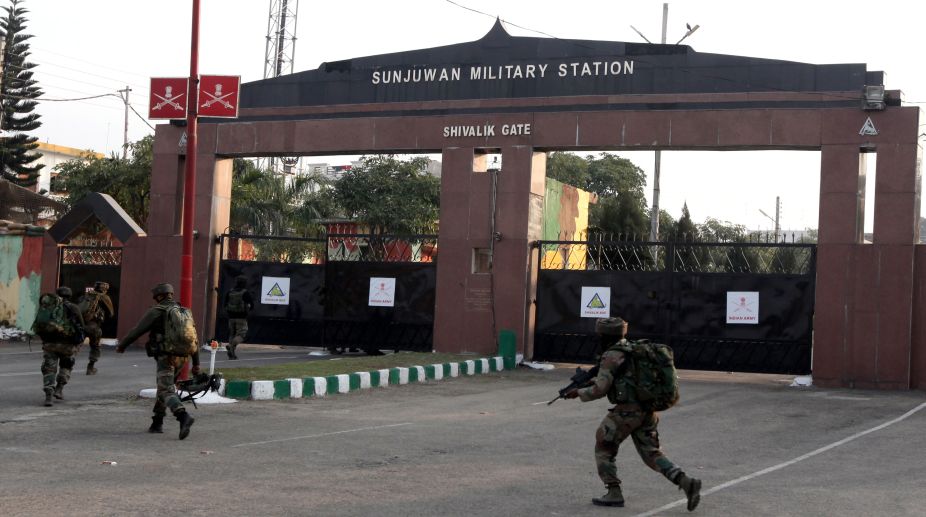Coincidental perhaps, certainly ironic. Just when the defence ministry was announcing a Rs 1,487-crore project to boost the protection of military bases in J&K a suicide squad ruptured the perimeter of the Army station at Sunjuwan in Jammu (a brigade headquarters), reached the residential section, and in an extended raid took the lives of five soldiers and a civilian, forcing evacuation of a part of the camp.
That all the terrorists (there are conflicting reports of whether there were three or four of them) were neutralised is no “compensation” ~ fidayeen never expect to return from their forays. What the terror strike underscores is that despite a series of such incidents ~ Pathankot, Uri, Nagrota… ~ the security at such installations remains questionable, terror-squads breach their “fortifications” with ease.
Advertisement
That many of the terror strikes were mounted at what in military jargon is called “first light” only reaffirms a degree of laxity in the security apparatus. Worse, an alert was in place when the Sunjuwan strike was mounted. While few details have been disclosed about the Rs 1,487-crore project, it is not as though the military was unaware of the weaknesses ~ the recommendations of the panel headed by Lt. Gen. P Campose have obviously been given little attention.
This matter calls for a thorough probe, blaming Pakistan for backing outfits like the JeM, LeT etc is not good enough. And now sources conveniently point out that Rohingya refugees live near Sunjuwan, perhaps the terrorists got local support from them ~ a deliberate attempt to inject a political/communal flavour to the explanation for the ineptitude in protecting the Army base. The forces must learn to accept their own shortcomings.
The repeated terror strikes send out disturbing signals to the community at large. For starters, they serve to ridicule the bellicose statements from government and Army leaders claiming to have “broken the back of militancy”, or that militancy-backers across the border are “paying” in the wake of “surgical strikes, punitive fire-assaults, befitting replies” etc ~ the so-called cease-fire is breached with impunity. A consequence is that the people have limited confidence in the Army/paramilitary capacity to defend themselves, and so think it makes little sense to resist the demands/pressures of the militants and separatist forces.
In the absence of any serious attempts at reaching out to the people, repeatedly peppering protesters with pellet guns and so on, the common people find little reason to side with the forces. It is a mistaken belief that large sections of the populace favour the call for azadi (whatever that means), all they desire is a chance to lead normal lives, avoid being trapped in cross-fire. Basic to that desire is a sense of feeling safe. A sense that will prevail only after the forces convince them that security, like charity, begins at home.









